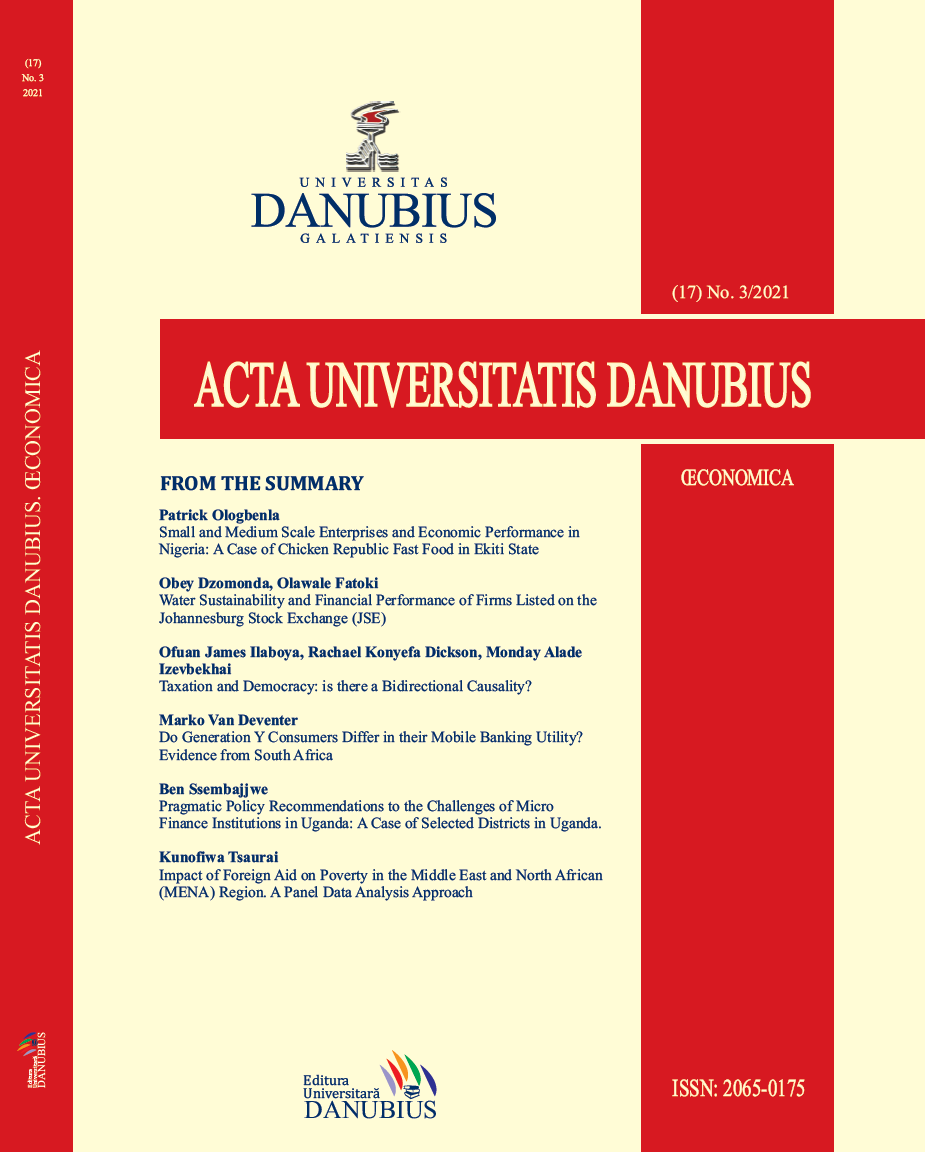Taxation and Democracy: is there a Bidirectional Causality?
Taxation and Democracy: is there a Bidirectional Causality?
Author(s): James Ofuan Ilaboya, Rachael Konyefa Dickson, Monday Alade IzevbekhaiSubject(s): Business Economy / Management
Published by: Editura Universitară Danubius
Keywords: Democratisation; indirect taxation; reverse sequencing; Openness; Musgravian functions;
Summary/Abstract: The study investigates the validity of the positive nexus between taxation and Democracy in developing economy setting with an emphasis on Nigeria. This study is motivated by the counter intuitive trend of the Nigerian tax to GDP ratio, which in current terms is not substantially different from the results of the Middle East economies where there is zero-tolerance for democratisation. This is a country-specific, longitudinal, time-series research strategy with data set from 1980 to 2017. The dichotomous nature of the dependent variable necessitates the use of logistic regression. The result of the analysis shows a mildly positive relations ship between tax ratio to GDP and index of democratisation. The alternate variable of indirect tax is negatively related to democratisation, so do the control variables of population growth rate and openness. The control variable of corruption is positive and significant. We recommend a sweeping reform of the Nigeria Tax system, including reengineering the mindset of the Nigerian tax administrators.
Journal: Acta Universitatis Danubius. Œconomica
- Issue Year: 17/2021
- Issue No: 3
- Page Range: 47-63
- Page Count: 17
- Language: English

